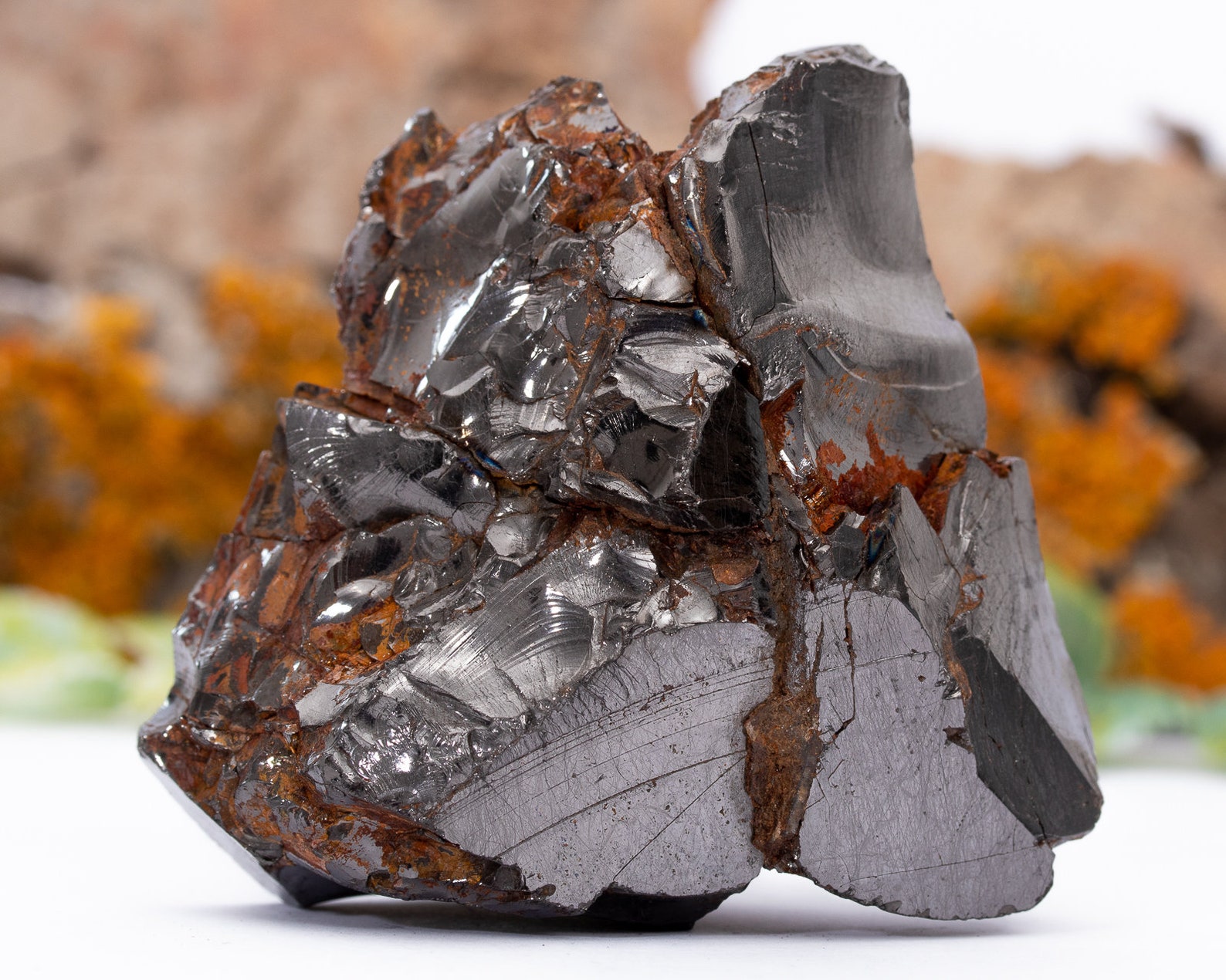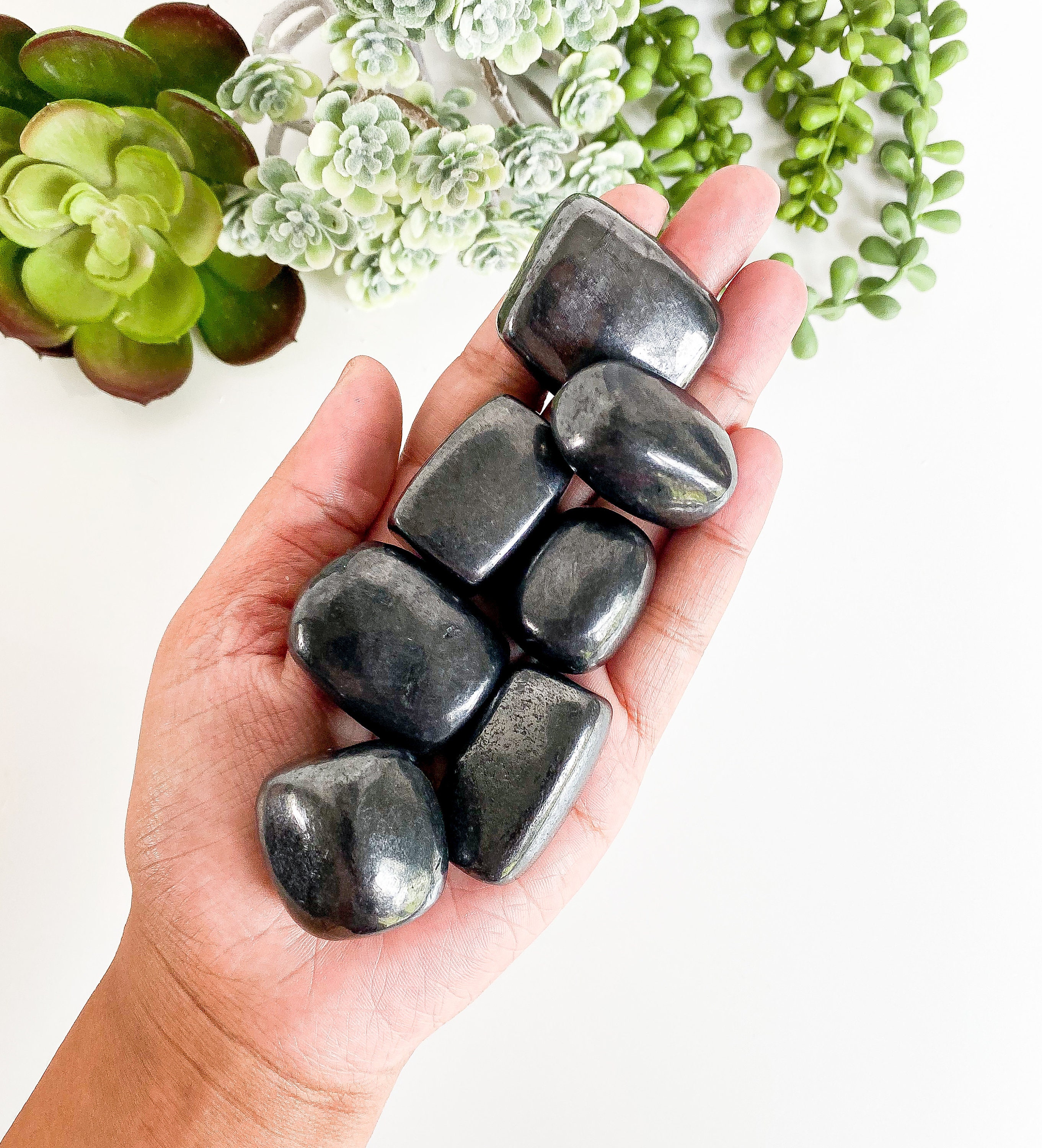Shungite is a Stone Which includes Anti-Inflammatory Properties Along With Grounding Effects

Shungite is a black mineraloid that has been found throughout the Karelia region of Russia. It is a deposit that is situated close to the town of Shunga. The mineral has been found in various areas and is believed to be an effective anti-inflammatory drug. It has also been discovered to possess grounding properties and contains heavy metals, such as copper and zinc.
Origin story
Shungite is a carbon mineral. It has an unusual chemical composition that makes it different from other rocks and minerals. The natural properties include fullerenes, which encapsulate water.
It is believed that it has been formed around two billion years ago. The mineral was discovered at the Karelian region of Russia. The name "shungite" is derived from the town of Shun'ga.
In the 17th and 18th centuries, the mineral had a reputation for healing. The locals would use it for treating ailments as well as a disinfectant. It was also used to treat infections. Peter the Great discovered its benefits and encouraged its use.
When the Russian army attacked Sweden Shungite was a key element of their success. A number of soldiers were poisoned due to the ore they were processing but the shungite water healed all of them.
Composition

Shungite is an amorphous carbon rock that has a unique chemical composition. It's the result the interaction between individual elements, which form complex organometallic complexes. In addition, it has an extremely high electrical and thermal reactivity.
Numerous studies have been conducted regarding the shungite. This includes research on the sorption properties of shungite as well as antioxidant properties and medicinal properties.
The mineral shungite can be described as a carbon amorphous mineral that has high reactivity in electrical and thermal processes. This is because of the presence of the hybridized carbon atoms. A special spherical structure is created by the atoms of the carbon that has been hybridized. In the shungite's components are FeO, MgO, A12O3, and TiO2.
The mineral shungite, an allotropic metastable carbon type which is distinguished by its highly adsorbent capacity and an intense reactivity when heated to high temperatures. In addition, it is believed to be a source of the mineral REE.
Anti-inflammatory properties
Shungite is a natural anti-inflammatory agent that can offer a wide range of uses. Its antioxidant properties help to counteract superoxide production, reduce ROS/RNS levels, and reduce inflammatory cytokine responses. These properties may help protect skin against UVB radiation and help sufferers of oxidative stress disorders.
In addition to its antioxidant benefits Shungite also protects cells from harming electromagnetic fields. This suggests that it can aid in the treatment of cancer. Furthermore, it may act like an antihistamine. While more studies are needed to verify these findings, the study highlights the potential of shungite to combat oxidative and inflammatory diseases.
A scientific study was conducted to determine the impact of shungite on rats. Results showed that shungite slowed down the production of ROS and lowered the inflammatory cytokine level and increased the ROS-scavenging enzymes. In addition, it reversed inflammatory cytokine imbalance induced by UV radiation.
Metals heavy released by shungite samples
The shungite samples released various heavy metals into the water. Lead, cadmium, zinc arsenic, copper, and lead were identified. These elements were found in drinking water before and after contact with shungite.

Shungite is a carbon-containing natural mineral. It has a very high adsorption capacity and has unique chemical composition. The study sought to study the sorption characteristics of shungite in relation to heavy metals. Furthermore the effects of shungite on the removal of artificially enhanced copper ions in drinking water were examined.
The retention of Cu(II) at an initial concentration of 2,500 mg/L was investigated. Results showed that the shungite exhibits good adsorption towards copper. It was observed that the sorption properties decline when exposed for 21 days.
Grounding properties
Shungite, a black mineral, is said to possess amazing properties for grounding. It's a rare stone with lots of potential for use in health and science fields.
Alongside its properties for grounding, shungite can also be used to purify water naturally. It has been proved to remove harmful bacteria and other harmful substances from water.
Shungite is a stone with a high carbon content, which suggests it was a result of biological processes that occurred that took place in oceans from the early world. This is why it is a potent natural healer. shungite stone meaning of shungite to heal has been practiced in Russia for centuries.
Another key characteristic of shungite is its capacity to absorb and absorb electromagnetic pollution. This can help people stay well and free of harmful electromagnetic radiation.
Metaphysical nature
Shungite is a stone from the past with many benefits. It is a very grounded, protective, and healing stone. The mineral is also useful for electromagnetic fields and the physical body. Based on the intent, a person can expect various experiences when using the stone.
One of the main advantages of the stone is its anti-inflammatory properties. Fullerenes, carbon-based molecules found in the stone, serve as an antioxidant that has important antiviral and antibacterial properties.
Another benefit of Shungite is its capacity to amplify other metaphysical abilities. It is believed to provide an effective protection against electromagnetic fields that can be harmful which helps to shield you from negative influences.
